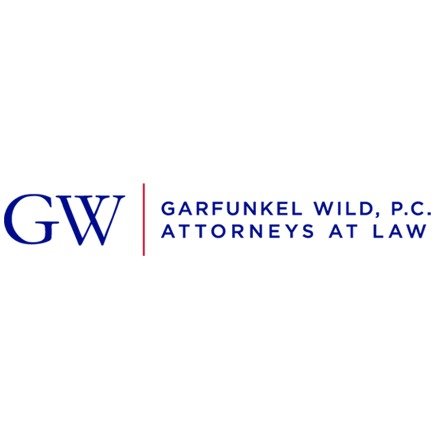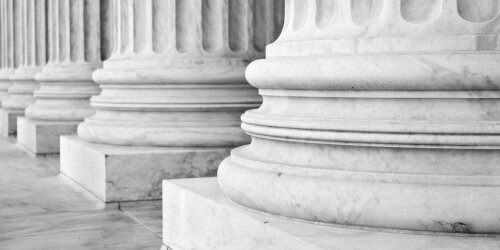Best FDA Law Lawyers in New York
Share your needs with us, get contacted by law firms.
Free. Takes 2 min.
Or refine your search by selecting a city:
List of the best lawyers in New York, United States
About FDA Law in New York, United States
FDA Law in New York, United States refers to the body of local, state, and federal regulations governing the manufacturing, distribution, marketing, and sale of food, drugs, medical devices, cosmetics, and related products. The Food and Drug Administration (FDA) is the federal agency responsible for enforcing these laws, but in New York, additional state and local regulations can also apply. Businesses in New York must comply with both federal FDA regulations and state-specific requirements to ensure consumer safety and avoid legal penalties.
Why You May Need a Lawyer
There are several scenarios where seeking help from a lawyer with experience in FDA Law may be necessary. These include helping businesses gain or maintain FDA approval for new products, navigating FDA inspections or investigations, responding to warning letters or enforcement actions, handling product recalls, or defending against allegations of non-compliance. Individuals or companies developing new drugs, medical devices, food products, dietary supplements, or cosmetics may need guidance on regulatory requirements, labeling, advertising, and reporting obligations. Legal counsel is also important for reviewing contracts, protecting intellectual property, or representing clients in administrative or court proceedings related to FDA matters.
Local Laws Overview
In New York, companies and individuals involved in the production and sale of FDA-regulated products must comply with both federal regulations and various state laws. The New York State Department of Agriculture and Markets, the New York State Department of Health, and the New York City Department of Health and Mental Hygiene often play significant roles in implementing and enforcing supplementary rules. For example, New York imposes additional licensing and inspection requirements for food manufacturers, distributors, and drug outlets. The state also regulates certain ingredients and labeling practices more strictly than federal law in some cases. Businesses must be aware of both FDA guidance and New York state laws regarding product composition, labeling, safety reporting, distribution practices, and recalls.
Frequently Asked Questions
What is the FDA and what products does it regulate?
The FDA is a federal agency that regulates food, drugs, medical devices, cosmetics, dietary supplements, tobacco products, and certain electronic products. Its mission is to protect public health by ensuring that these products are safe and properly labeled.
Do I need FDA approval before selling my product in New York?
Some products, like new drugs and medical devices, require FDA approval before they can be marketed. For foods, cosmetics, and dietary supplements, pre-market approval is usually not required, but compliance with FDA regulations and New York state laws is still necessary.
What are the labeling requirements for food and drugs in New York?
Food and drug labeling must comply with federal laws, including listing ingredients, nutritional information, and warnings. New York may have additional requirements, especially for allergens and certain state-specific disclosures.
How can I respond to an FDA warning letter?
If you receive an FDA warning letter, it is important to respond promptly and comprehensively. You should address the violations cited, document corrective actions, and consider consulting an attorney experienced in FDA Law to help draft the response.
Are there special regulations for dietary supplements in New York?
Yes, dietary supplements are regulated under federal law but also must comply with New York regulations, which may include specific manufacturing, labeling, and distribution standards. The New York Attorney General's office has previously conducted investigations into supplement labeling and ingredient accuracy.
What happens if my business fails an FDA inspection in New York?
Failing an FDA inspection can result in warning letters, product recalls, seizures, injunctions, and fines. The New York State Department of Health may also take independent action depending on the nature of the violation.
How do recalls work for FDA-regulated products in New York?
Recalls are generally initiated by companies when a product is found to violate FDA laws or pose safety risks. These can be voluntary or mandated by the FDA. New York authorities may assist with state-level notification and enforcement.
Does New York require additional licensing for food or drug businesses?
Yes, New York often requires additional state-specific licenses or registrations for businesses involved in food processing, drug distribution, and certain manufacturing activities.
Can I market a product as “FDA approved” in New York?
Only specific products, such as new drugs or certain medical devices, may be marketed as "FDA approved." Using this term improperly on products that have not received FDA approval is considered misleading and may result in enforcement action.
Where do I file complaints about FDA-regulated products in New York?
Complaints can be filed directly with the FDA or with state agencies such as the New York State Department of Health or the Department of Agriculture and Markets.
Additional Resources
Several resources are available for those seeking guidance on FDA Law in New York. These include:
- U.S. Food and Drug Administration (FDA)
- New York State Department of Health
- New York State Department of Agriculture and Markets
- New York Attorney General’s Office
- New York City Department of Health and Mental Hygiene
- Legal aid organizations and local law libraries
- Trade associations for food, drug, and medical device industries
Next Steps
If you believe you need legal assistance regarding FDA Law in New York, start by identifying the specific issue you are facing, such as regulatory compliance, product approval, responding to enforcement actions, or business licensing. Gather all relevant documentation and details of your case. Consider consulting with a qualified attorney who specializes in FDA or health care law to discuss your options. You may also contact local industry organizations or governmental agencies for initial guidance. Taking prompt action can help protect your business, ensure compliance with regulations, and prevent costly legal penalties.
Lawzana helps you find the best lawyers and law firms in New York through a curated and pre-screened list of qualified legal professionals. Our platform offers rankings and detailed profiles of attorneys and law firms, allowing you to compare based on practice areas, including FDA Law, experience, and client feedback.
Each profile includes a description of the firm's areas of practice, client reviews, team members and partners, year of establishment, spoken languages, office locations, contact information, social media presence, and any published articles or resources. Most firms on our platform speak English and are experienced in both local and international legal matters.
Get a quote from top-rated law firms in New York, United States — quickly, securely, and without unnecessary hassle.
Disclaimer:
The information provided on this page is for general informational purposes only and does not constitute legal advice. While we strive to ensure the accuracy and relevance of the content, legal information may change over time, and interpretations of the law can vary. You should always consult with a qualified legal professional for advice specific to your situation.
We disclaim all liability for actions taken or not taken based on the content of this page. If you believe any information is incorrect or outdated, please contact us, and we will review and update it where appropriate.
Browse fda law law firms by city in New York
Refine your search by selecting a city.
















